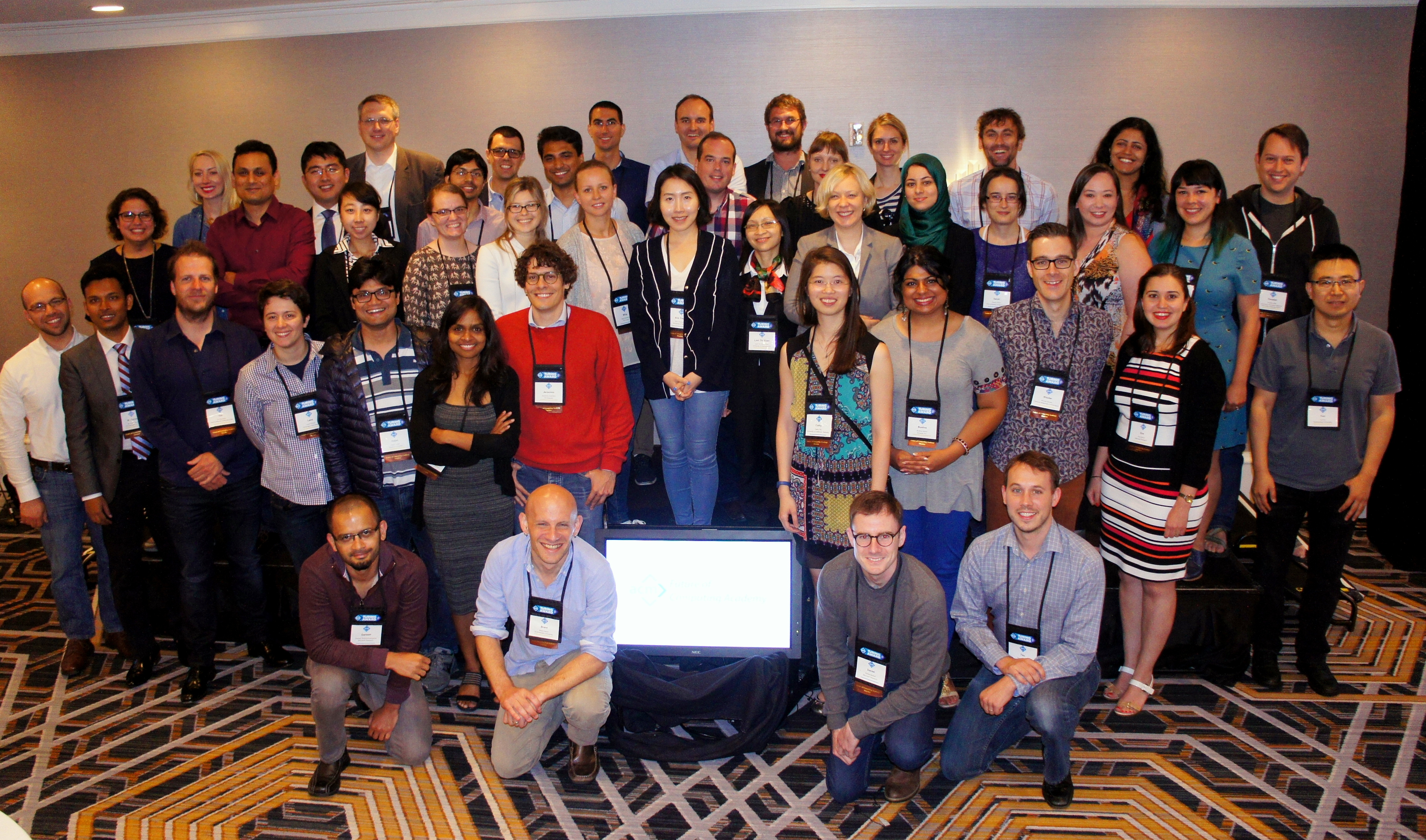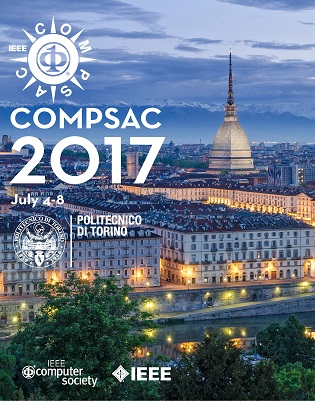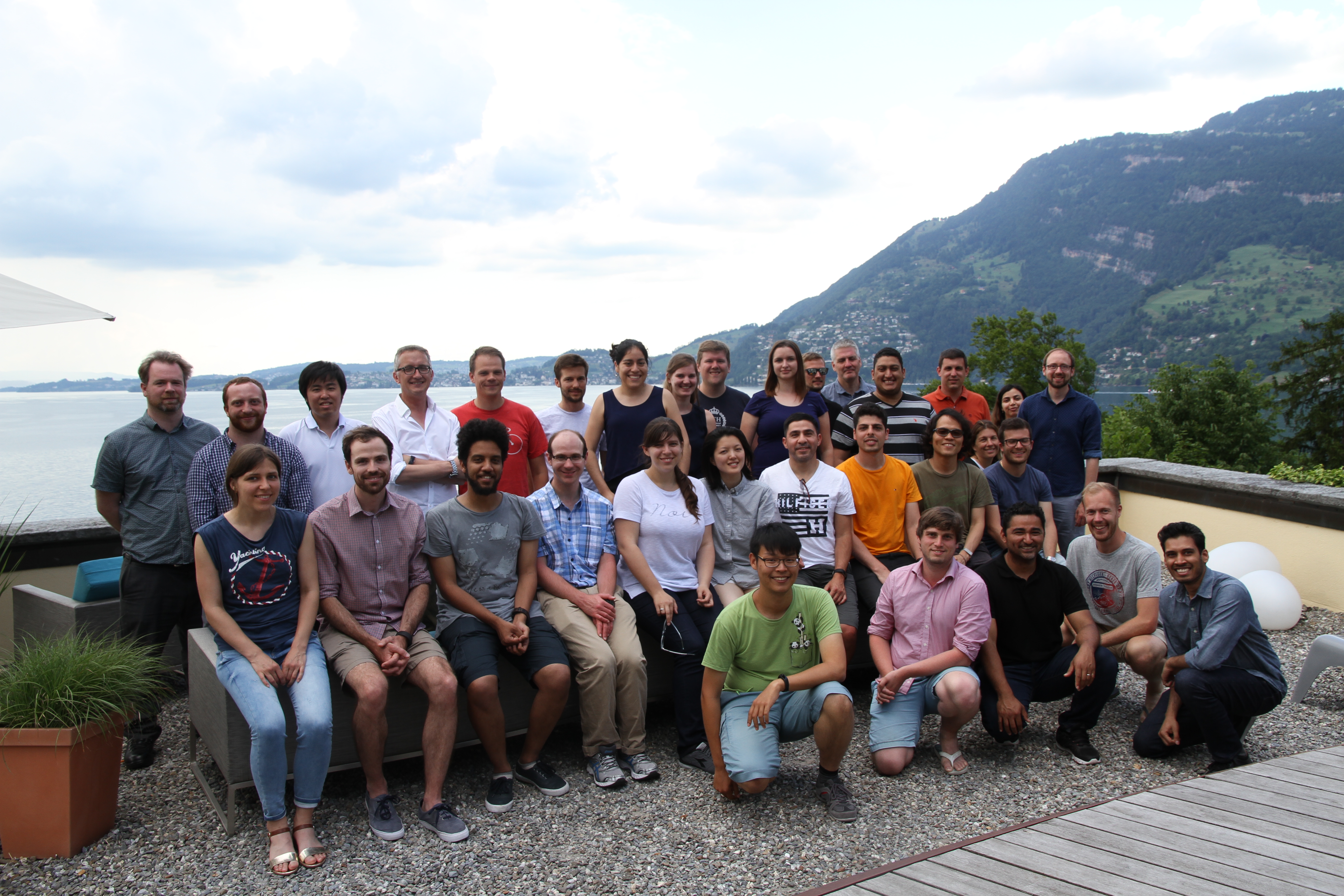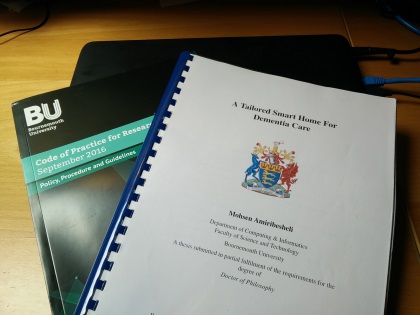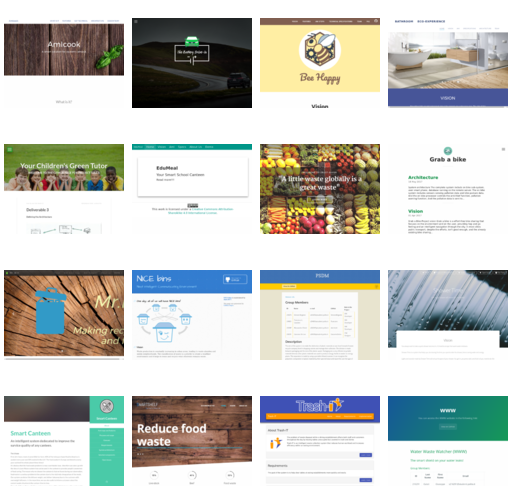- Details
On June 25, 2017 Luigi De Russis partecipated at the inaugural meeting of the ACM Future of Computing Academy (ACM FCA), in San Francisco. Together with the other 45 academy members, he was also invited to take part at the celebration of the 50th anniversary of the A. M. Turing Award (from the 23th to the 24th of June, in San Francisco).
- Details
The e-Lite Research Group will participate in the 41st IEEE Computer Society International Conference on Computers, Software & Applications (COMPSAC 2017), at the Politecnico di Torino, in Turin, Italy, on July 4-8, 2017. COMPSAC is the IEEE Computer Society Signature Conference on Computers, Software, and Applications.
Juan Pablo Sáenz will attend the conference and present the paper entitled Pain Points for Novice Programmers of Ambient Intelligence Systems: an Exploratory Study in the Symposium on Software Engineering Technologies & Applications (SETA). The paper presentation is scheduled on Thursday, the 6th of July, from 3pm to 4:30pm, in Room 2i (Corte Interrata).
The paper presents an exploratory study aimed at identifying the pain points that novice programmers experience, from the software engineering perspective, when developing and deploying Ambient Intelligence (AmI) systems. The exploratory study was conducted among undergraduate students, and based on their own experiences, individually and as a group, pain points were identified and prioritized over a common architecture and a set of software development activities. Results represent a starting point for the design of tools and methodologies targeted at overcoming the complexity that novice programmers face when developing AmI systems.
- Details
From the 12th to the 17th of June 2017, Alberto Monge Roffarello participated to the 3rd ACM SIGCHI Summer School on Computational Interaction, taken in Vitznau, Switzerland, and organized by ETH Zurich.
The goal of the summer school was to teach PhD students and researchers the foundations of computational tools in the context of user interface design and their application in interactive systems. In particular, each day was organized around a common theme, ranging from the combinatorial optimization of user interfaces, to the application of the control theory to the Human Computer Interaction. The focus was on modeling the user behavior, e.g., through heuristics or machine learning approaches, to design user interfaces that satisfy the user needs.
The summer school ended with a full-day hackaton, where different groups had the opportunity to implement the concepts learned during the week. The topic of the Alberto's group was optimizing the layout of the smartphone's home screen by using combinatorial optimization methods.
- Details
At the latest EICS 2017 Conference, taken in Lisbon (Portugal), Teodoro Montanaro presented a late-breaking result entitled XDN: Cross-Device Framework for Custom Notifications Management.
As notifications become part of people’s lives, their importance often depends on various factors that can influence the reaction and the disruption of recipients. The generation and the distribution of notifications should be carefully designed every time a new application or smart device is devised.
- Details
On May 31, 2017, Mohsen Amiribesheli discussed his Ph.D. thesis in a Viva voce session at Bournemouth University (UK). The thesis title is "A Tailored Smart Home for Dementia Care" and has been supervised by prof. Hamid Bouchachia. The thesis reports an original research work about the design of a smart home specifically tailored for the needs of persons with dementia.
The work presents a novel methodology for requirements elicitation, that is shown to identify a comprehensive set of validated requirements, with a method that considers the impossibility of directly interviewing or involving the end user in the design steps. The initial design requirements are then refined into a system architecture and a set of functional and non-functional requirements, leading to the development and evaluation of a prototype. Finally, the author shows how to extend the behaviour of the prototype by a set of behaviour rules tailored to each patient.
The evaluation was conducted by prof. Keith Phalp (Internal External) and prof. Fulvio Corno (External Examiner).
- Details
The students of the Ambient Intelligence course, edition 2017, are approaching the turning point: 16 projects are completing their design phase, and will soon start the implementation of the project demonstrators.
Projects are exploring various areas of ambient intelligence systems, applied to the domain of Sustainability.
On May 25, 2017, the 16 student groups of the Ambient Intelligence course will present a 5-minutes "pitch" about their proposed project and will unveil to the public the project contents. As a spoiler, the project names are: AmiCook, Bathroom-Ecoexperience, Battery-Drive-In, Bee-Happy, Edumeal, Fuit-Saver, Grab-a-bike, Mr.Bin, Nice-Bins, PSDM, Shower-time, Smart-canteen, Smartshelf, TrashIt, WWW, YourChildrenGreenTutor.
The presentation is public, open to all interested students, and to interested enterprises and professionals. The attending industrial stakeholders and sponsors will provide a feedback about the presented projects.


